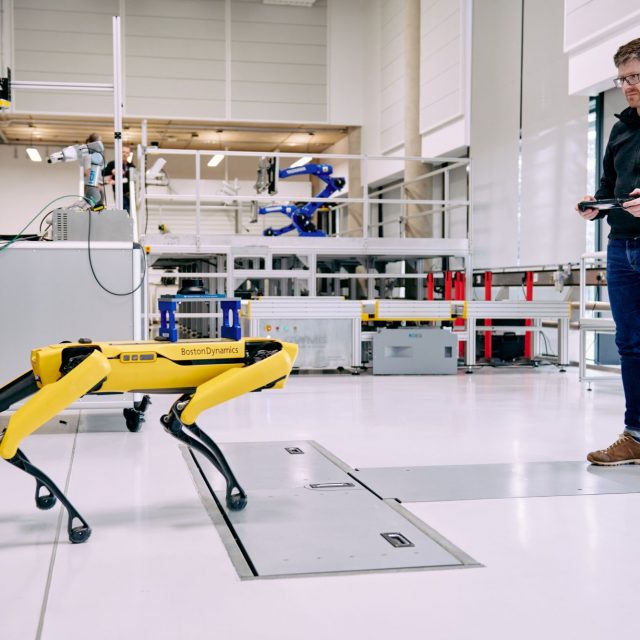Immersive Technologies
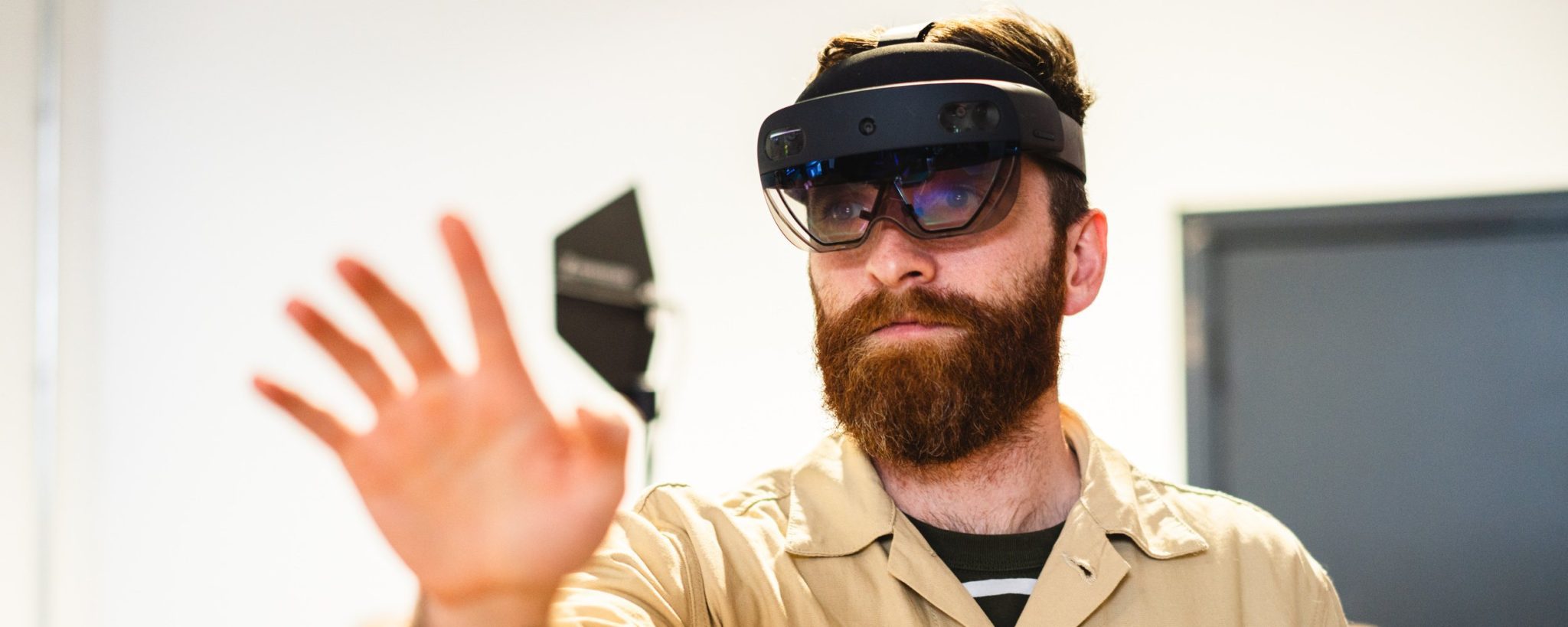
Across almost every industry, immersive technologies are rapidly transforming the United Kingdom’s economic landscape, with the West Midlands at the forefront of cutting-edge innovation.
A sector that develops and creates new ways for people to display and interact with content and experiences across specialisms including virtual reality (VR), augmented reality (AR), and gaming, immersive technologies are playing a pivotal role in the UK Government’s strategic vision of becoming a Science and Technology Superpower by 2030.
As Europe’s leading tech ecosystem, and third in the world behind only the US and China, the UK has retained its position as a global tech leader, amidst a backdrop of difficult economic conditions.
The West Midlands, renowned as a region for innovation and the UK’s fastest-growing tech cluster, is pioneering the use of immersive technologies within healthcare, education, low carbon and many other sectors, transforming the ways we live and work.

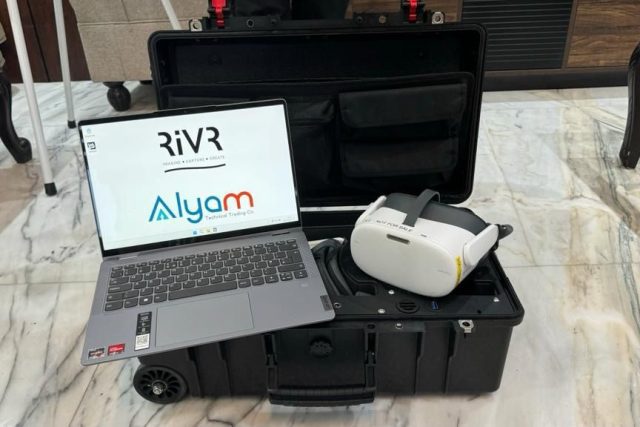
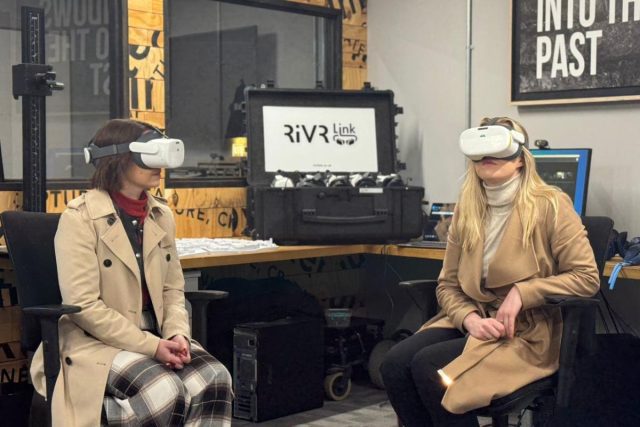
Science and tech superpower 2030 in immersive tech
With the UK Immersive Technology sector expected to be worth £3.2bn by 2027 and growing rapidly, the West Midlands is well placed to play a leading role in supporting the UK Government to achieve its strategic vision of becoming a Science and Technology Superpower by 2030.
The West Midlands’ unique “Quad Helix Approach” – an interlinked ecosystem combining academic R&D institutions, public sector organisations, private sector firms and a deep pool of tech talent – will also play a critical role in achieving this ambition.
The importance of immersive technology in the West Midlands
Immersive technologies offer a multitude of benefits across various industries and applications, helping to address key global challenges.
Offering enhanced learning and training, immersive technologies can provide realistic and interactive training experiences across multiple fields including healthcare, education, military and engineering. Given the West Midlands’ status as the UK’s fastest-growing tech cluster and supported by our academic institutions and the wider ecosystem, this experiential learning makes it far easier to grasp complex concepts, ultimately allowing for greater innovation on a faster scale.
Immersive technologies are also helping our region lead the way in achieving government targets, including becoming net zero by 2041 and transforming our economy through digital technology.
Despite our size as a small island nation, the UK is a technology powerhouse. Last year, the UK became just the third country in the world to have a tech sector valued at $1 trillion. It is the biggest in Europe by some distance and behind only the US and China globally.
The technology landscape, though, is constantly evolving, and we need a tech ecosystem which can respond to those shifting sands, harness its opportunities, and address emerging challenges.
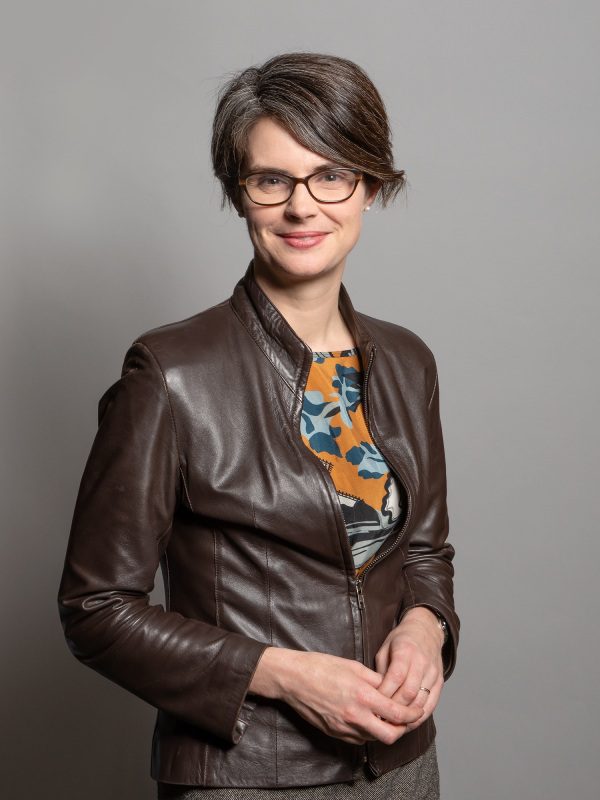
How have West Midlands organisations innovated with Immersive Technologies?
MedTech
Additional pressures on the MedTech sector, in part due to the Covid-19 pandemic, have increased demand for new approaches to increase efficiency and performance through digitalisation. Whilst the current number of immersive tech companies within healthcare is relatively low when compared to other sectors, it has experienced a national growth rate of 88% across the last five years.
Companies in the West Midlands are now starting to adopt immersive technologies to advance the life sciences sector. The technology enables realistic simulations for medical training, allowing professionals and students to practice procedures, interventions and care in controlled environments, whilst also finding non-traditional uses for physical rehabilitation by creating immersive environments that can motivate and engage patients in their recovery.
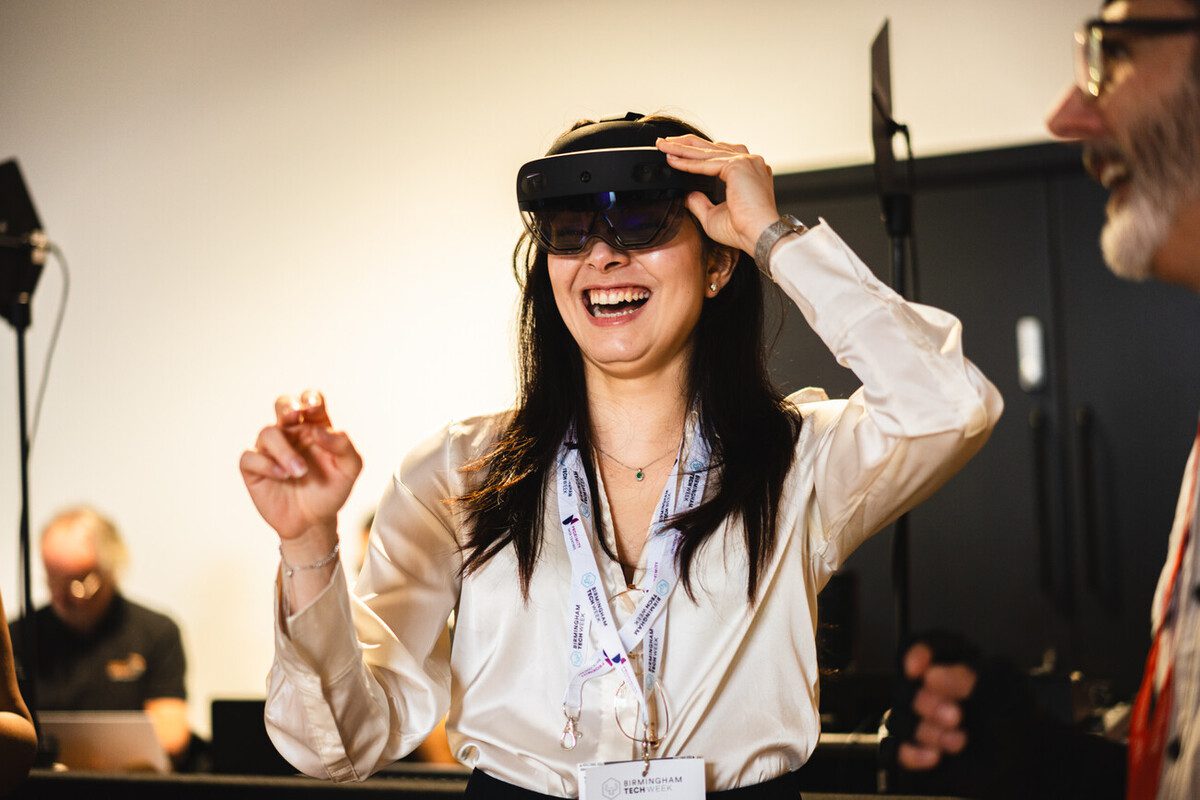
FourPlus Immersive
Based in Birmingham, FourPlus Immersive offers immersive software solutions and experiences to support the life sciences and healthcare sectors. Solutions include skills and process training, facility mapping and recruitment tools for medicines manufacturers, academia and educators, equipment vendors and healthcare professionals.
The ‘Accelerate’ VR training environment takes users inside a virtual GMP facility, helping their readiness levels for real manufacturing facilities by teaching users how to safely orientate the facility, and perform vital tasks including gowning and cleaning. They also utilise VR tours to support users with critical inspections, employee and product training, and facility showcases to potential clients. The technology allows for an unparalleled level of immersion, allowing the users to engage as if they were physically present.
By using immersive technologies for experiential learning, FourPlus are combining expertise in life sciences and technology to deliver solutions that will ultimately bring about real change in modern medicine production. With improved safety, greater collaboration, and reduced costs, patients who need these medicines will be the ultimate beneficiaries.
WM5G
WM5G has innovated with BT and University Hospitals Birmingham NHS Trust to deliver the UK’s first demonstration of how immersive technologies, powered by 5G, are set to revolutionise paramedic healthcare.
Using virtual augmented reality enabled by 5G connectivity, a haptic glove was worn by a medical responder on-site, transmitting data to a remotely located clinician who analysed the data in real time to perform a remote ultrasound.
The potential for this immersive, 5G-enabled technology is phenomenal, reducing hospital visits, improving the speed of diagnosis and enabling paramedics to deliver the right care immediately.
Advanced Tech
Recognised as a UK leader in emerging technologies, the West Midlands’ AdvancedTech sector is growing at a rapid rate, supported by next-generation developments in 5G capacity, increased cross-sector collaboration and world-class R&D infrastructure. Companies in this domain are using immersive technologies to innovate unprecedented products and services.
Holosphere
Spatial computing company Holosphere is utilising the latest immersive technologies to design and deliver bespoke, highly effective simulations to solve real-world business challenges.
Working with leading infrastructure company Balfour Beatty to help deliver major operational gains in project management and stakeholder communication, Holosphere utilised immersive technology to create ‘digital twins’ of Balfour Beatty’s construction sites. Drone and LiDAR technology was used to produce accurate, finely detailed recreations of complex environments, whilst the simulation was built using Unreal Engine 4 – an advanced gaming technology – and operated on both Oculus and VR hardware.
This project received high praise from Balfour Beatty and key stakeholders, with benefits including closer colleague collaboration, cost reduction via remote working, improved health and safety, greater company communication and enhanced, global operation coordination.
RiVR
RiVR offers immersive training for all industries, capturing and recreating any location in photorealistic virtual reality via their RiVR VR Simulation Engine and VRM (Virtual Reality Monitor). This enables users to interact with and experience these worlds, enhancing their learning. The fusion of education and VR allows users to learn through a sensory experience that encourages critical thinking and allows them to draw from memory.
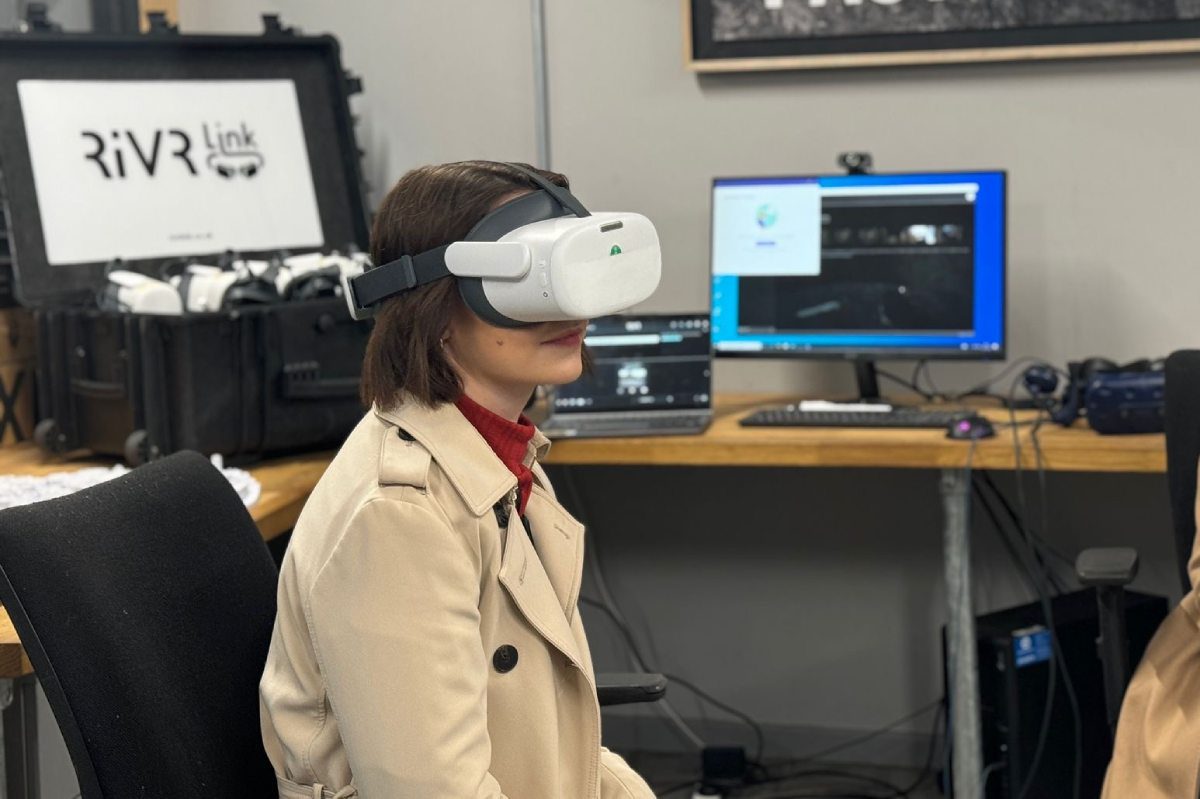
BOM (Birmingham Open Media)
BOM (Birmingham Open Media) is a creative technology organisation developing socially impactful immersive experiences and digital skills programmes. They innovate with virtual and augmented reality, games and other interactive content to create award-winning immersive experiences with strong social purpose.
Their portfolio of innovation includes Round Midnight VR – an experience that educates vulnerable young people at the risk of violent crime, Beholder – a VR experience that explores autistic perceptions of beauty, Mood Pinball – a playable pinball machine gamifying urban data for the Open Data Institute and a ‘Smart’ Queen’s Baton – showcased as part of the Birmingham 2022 Commonwealth Games, amongst many others.
Who could your company collaborate with on innovative Immersive Technologies projects in the West Midlands?
Health Innovation West Midlands (HIWM)
Located in central Birmingham, Health Innovation West Midlands (HIWM) acts as an innovation arm of the NHS, catalysing collaboration between academia, industry, health and care providers, commissioners and citizens, to support continuous improvement of the West Midlands’ health sector.
Within the digital healthcare space, HIWM has partnered with Bruntwood SciTech for the launch of the Serendip Incubator & Accelerator Programme. Innovative digital health and MedTech companies can join an environment where they can innovate and scale at pace, receiving 12 months of tailored business support, links to key stakeholders, an investment readiness package, access to an SME convertible loan and more.
The Institute of Digital Healthcare (IDH)
Part of the University of Warwick, the Institute of Digital Healthcare aims to improve people’s health and wellbeing by using innovative digital technologies.
The IDH has conducted research on how immersive technologies can assist with physiotherapy. With patients not receiving regular guidance other than printed materials and static photographs for physiotherapy instruction, the IDH has investigated whether virtual reality technology combined with 3D motion capture can be used to provide a more immersive, educational experience. Researchers at the university successfully combined VR technology with 3D motion capture, before trialling how participants responded to the virtual physiotherapist.
Initial findings clearly highlighted the benefits of VR as the realistic multisensory information allowed participants to follow the virtual avatar more accurately when compared to physical, static imagery.
The IDH are now working on other movement types in partnership with physiotherapists, to establish the most specific areas of physiotherapy that will benefit from this technology. This opens opportunities for other immersive technologies to crossover from traditional uses.
Aston University
Aston University is actively implementing immersive technologies through cross-sector collaboration to help educate their students, especially in life sciences. Working with FourPlus Immersive and Holosphere, Aston has been awarded funding by Innovate UK to create and test a VR training platform for the university’s life sciences students.
The platform will address some of the sectoral challenges highlighted by the pandemic, allowing laboratory training in VR to be delivered remotely. Training in this way ensures the students can learn the crucial skills needed for future careers, even when they cannot physically enter a lab setting. It will create an enhanced and personalised learning experience as the technology means simulations can be taken multiple times, which isn’t possible in physical lab settings due to health and safety restrictions.
The university is also home to the Aston Laboratory for Immersive Virtual Environments (ALIVE) research facility. The facility combines motion capture, virtual reality and EEG recording equipment to provide a platform for combining research into visual perception, social cognition and social vision.
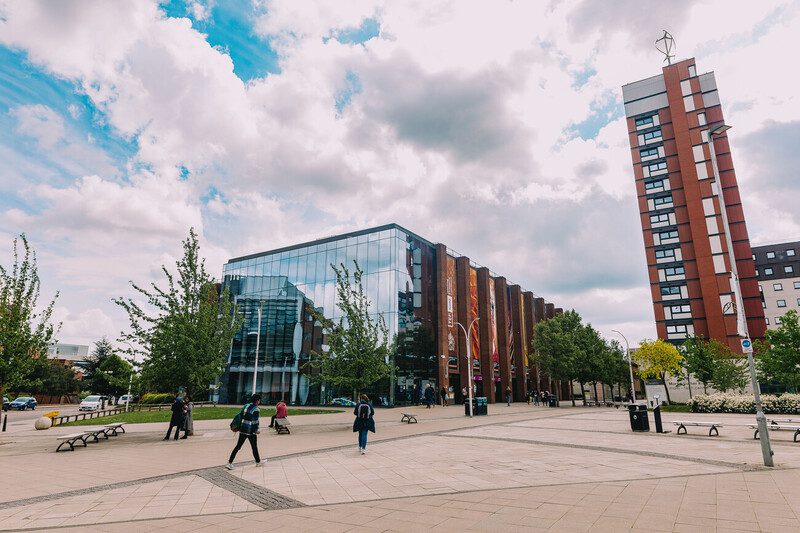
University of Wolverhampton
The University of Wolverhampton is preparing its students for a future of work in the construction industry and helping position the city as an international leader in sustainable construction, the circular economy, and brownfield development, through the adoption of immersive technology.
In 2022 the University’s National Brownfield Institute (NBI) took delivery of immersive technology designed to offer researchers, students and businesses an immersive environment for collaboration, visualisation, and simulation. The Igloo Vision Environment is a state-of-the-art nine-metre immersive cylinder, like a giant VR headset, and is being used within education and research to review and assess land for remediation and regeneration.
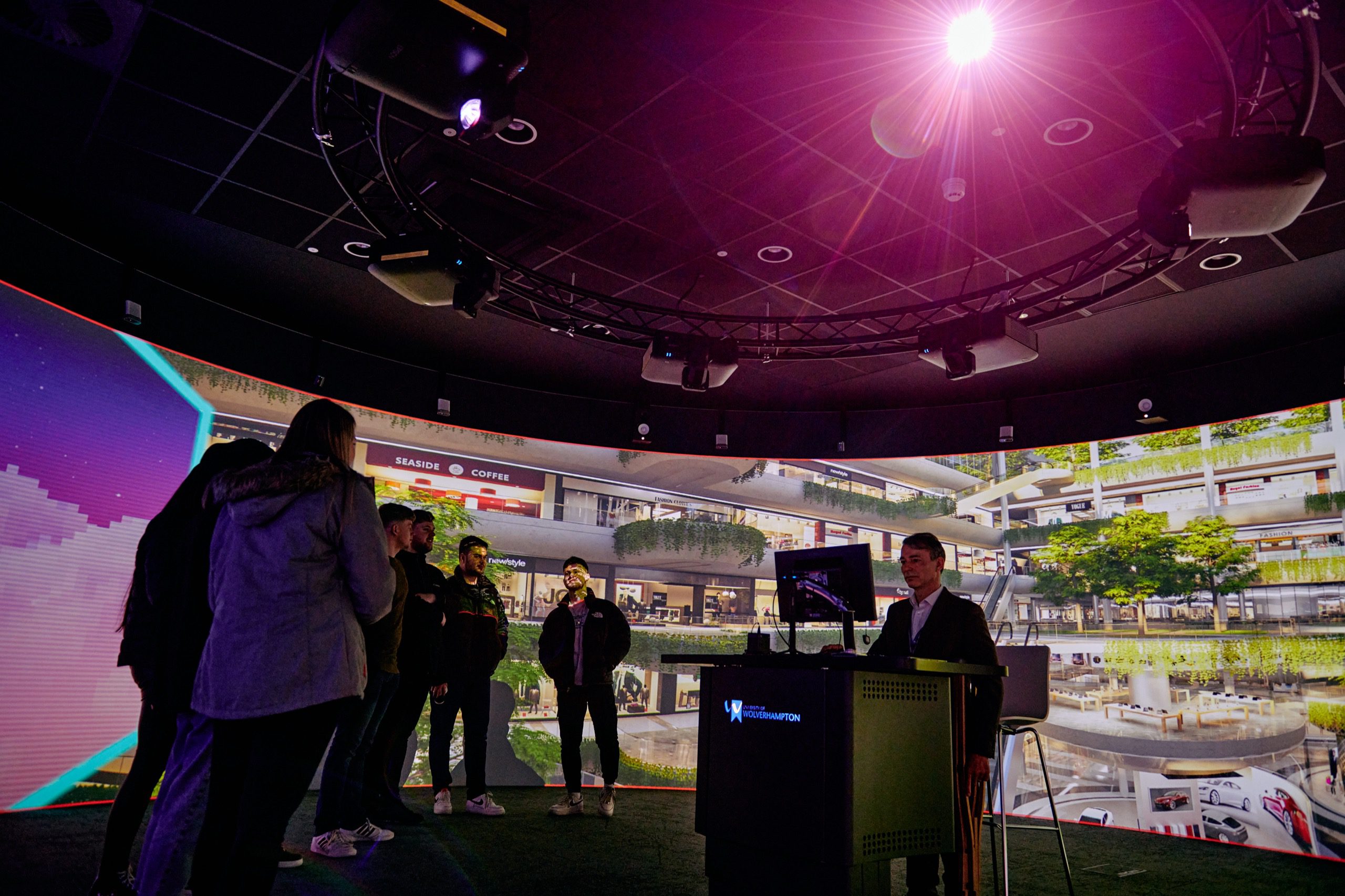
The Igloo provides an immersive, collaborative space for visualising a range of data including site mapping data, geological information, concept designs, interactive VR walkthroughs and 3D laser scan data in one immersive workspace. Businesses can test new working practices and showcase their products, designs and ideas, with the University mirroring these practices and integrating them into their courses.
How the West Midlands Combined Authority is encouraging Immersive Tech innovation
To ensure the West Midlands’ economy bounced back post-pandemic, the West Midlands Combined Authority established its Digital Roadmap in 2021. Identified as a key component, digital connectivity acts as a golden thread across our key industries, with ‘Realising the potential of digital to transform our economy and build economic resilience’ outlined as one of the five key missions.
The adoption of advanced digital technologies such as AR, VR, and 5G for firms across the regional economy is the key outcome.
Initiatives such as TechWM’s (formerly Birmingham Tech) ScaleUp Programme have been launched in partnership with the WMCA. The programme is a fully funded, free-to-access accelerator that provides high-potential tech businesses with advice and mentoring from successful tech entrepreneurs. Participating businesses have utilised immersive technologies – including gaming, virtual reality and augmented reality – to create exciting new products and services.
The West Midlands strengthened its gaming credentials in June 2022 when a 10-year Strategic Framework Agreement was announced. The partnership will capitalise on the significant economic opportunity the sector presents for the UK market by focusing on three key areas – employment and skills, policy, and major events. Additionally, a commitment within the agreement was made to establish a GEF Innovation and Research Centre (IRC). This will catalyse further collaboration between the private sector and the universities in the West Midlands, helping to spur innovation in gaming and immersive technologies.
Free support services
We bring together a project team from relevant organisations across the region. This team includes property agents, recruitment consultants, public sector departments and universities. It delivers a comprehensive support package to quickly and easily help you establish and scale your business in the UK.

Read more...
5G Innovation
Innovation in the West Midlands

Cyber Security Innovation
Innovation in the West Midlands

